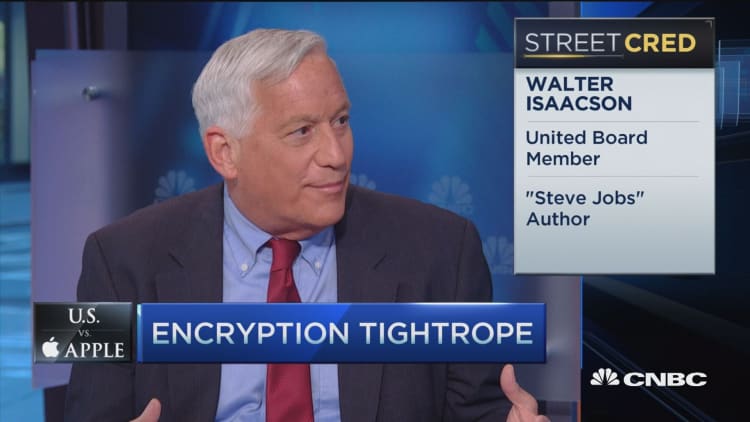
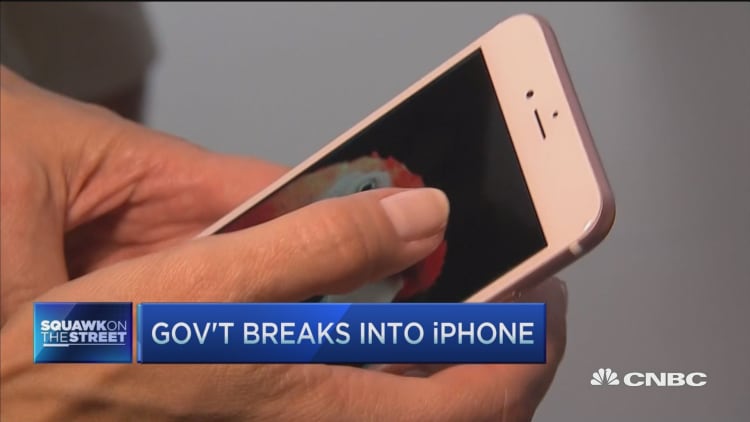
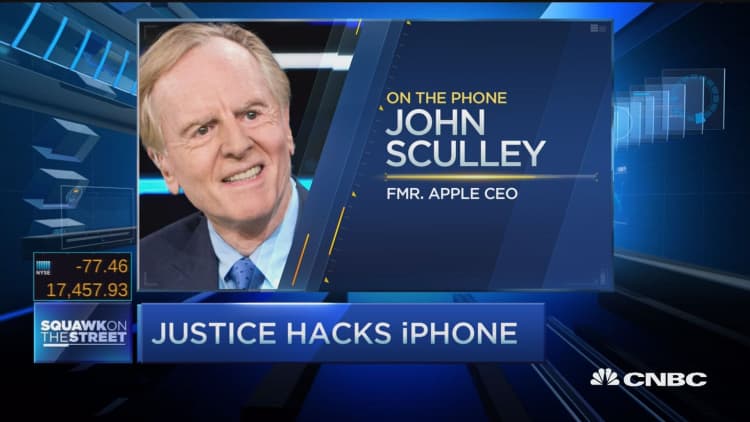
Major forms of communication should not be beyond the reach of the law, Walter Isaacson said one day after the Justice Department said it had broken into an iPhone used by one of the San Bernardino shooters.
As a result, the department said the FBI would no longer need Apple's help in cracking the device. For weeks, the tech giant had fought a federal court order to assist the FBI, sparking a national debate about the balance between national security and personal privacy.
Isaacson, CEO at the Aspen Institute and Steve Jobs' biographer, said the United States had developed the standards for reasonable search over the course of two centuries. He said smartphones should not be exempt from warrant searches.
He compared the idea of total online anonymity afforded by encryption to the Ring of Gyges, a mythical artifact cited by Plato that made the wearer invisible and capable of skirting justice.
"The question is, do you have a civil society and a rule of law if people can just put that on?" he said in an interview on CNBC's "Squawk Box." "It's not like our mobile phones should be separate from everything else in our lives."
"I don't believe that complete anonymity on everything you do helps make a better rule of law," he added.
Isaacson said the outcome was a positive one because the dispute would have been a "hard case," and hard cases make bad law.
"You don't want this whole thing to be settled on this San Bernardino case." he said. He noted that the dispute had brought a long-simmering conflict into the public eye.
Lawmakers and tech companies have long been at odds over the encryption being built into consumer devices.
Tech companies generally say encryption is necessary to protect their customers' privacy in a world besieged by data breaches. But national security and law enforcement officials worry it is creating a powerful tool for terrorists to communicate covertly and putting up high-tech roadblocks to investigations.
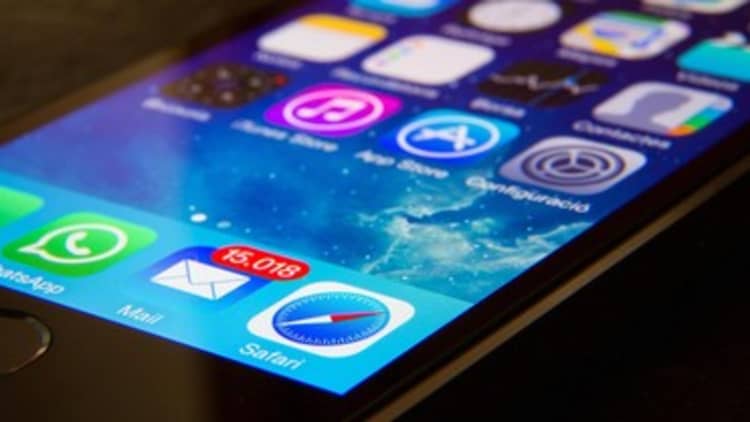
Andy Cunningham, founder of the Cunningham Collective and a former PR rep for Apple, said Tuesday she believes the case was always about setting a precedent that would allow the FBI to dictate how technology companies build mobile operating systems.
"Apple didn't want to set a precedent about having to write code at the direction of our government, or any other government or entity that wants to access an Apple device," she told CNBC's "Squawk on the Street." She said that would set "a very bad precedent and takes us to a dark place."
She said Apple will not necessarily suffer any blowback after a third party demonstrated it was able to hack the iPhone's operating system. No code or device is unbreakable, and absolute privacy is not possible, she added.
Former Apple CEO John Sculley called the resolution a "huge win" for the company. He told "Squawk on the Street" tech companies need clarity in the law, and going back to old writs is not the answer.
The government had staked its authority to compel Apple to cooperate on the All Writs Act, which was instituted in 1789 and has been amended several times.

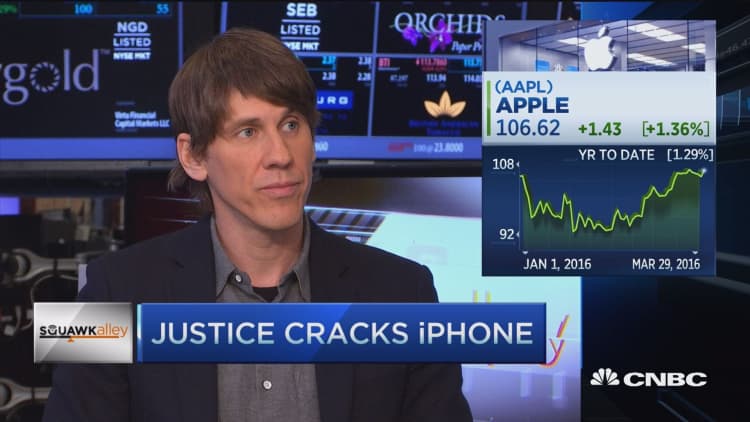
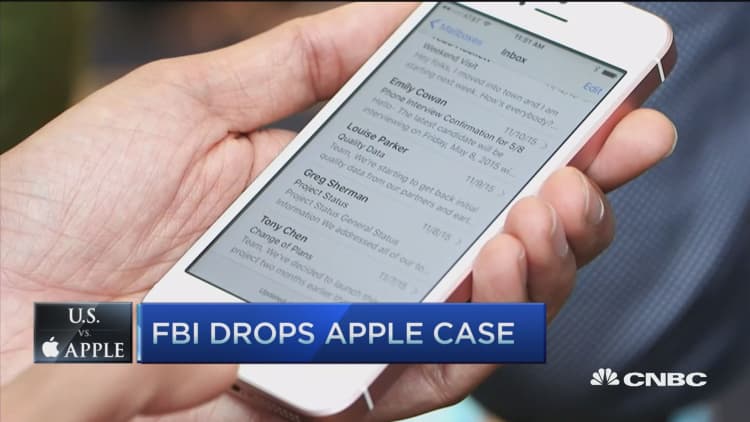
Rep. Darrell Issa, R-Calif., said there may be "very little Congress needs to do" in regards to clarifying the law because Americans' rights to privacy and to use encryption are constitutionally protected.
The Fourth Amendment spells out the conditions under which the government can search private property, but Americans have always had the right to the equivalent of encryption, he said.
"Our Founding Fathers never said you couldn't have a stronger door, or even build a fortress," he told CNBC's "Squawk Alley."
Guy Kawasaki, former chief evangelist for Apple, said he thought it was more likely for the Supreme Court to hand down a decision than for Congress to settle the debate over privacy and national security.
Though the government has asked a federal judge case to vacate the order, the issue is bound to come up again, he told "Squawk Alley."



